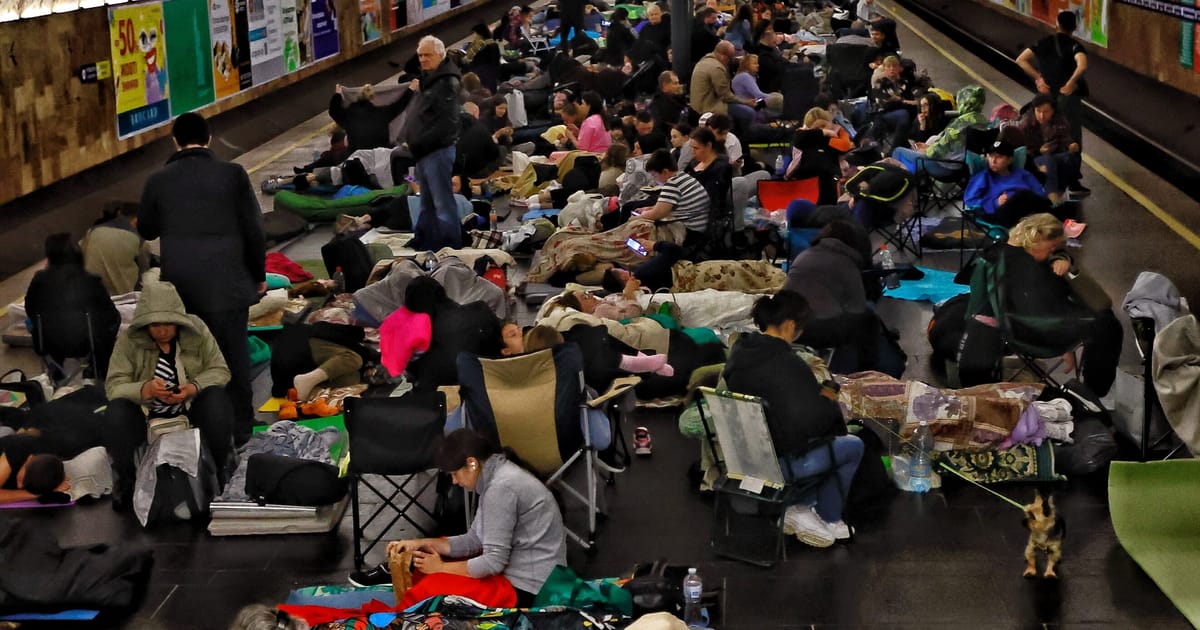

In the heart of Eastern Europe, the people of Kyiv continue to face the sobering realities of ongoing conflict, reminding us of the persistent challenges they endure amidst a backdrop of global political dynamics. A recent record-setting assault illustrates the conflict’s intensity as Russia launched a wave of drones and ballistic missiles over a harrowing seven-hour attack, intensifying the dire circumstances for Ukraine.
Ukrainian President Volodymyr Zelenskyy described this brutal attack as a “deliberate act of terror,” which many observers noted occurred soon after a significant diplomatic interaction between Russian President Vladimir Putin and former U.S. President Donald Trump. Beyond the physical damage inflicted, the timing of the strikes has ignited discussions on the nature and optics of international diplomacy, revealing the intricate dance of power and perception on the world stage. This assault, one of the most severe since the commencement of hostilities, underlines the grave threats perceived by Ukraine amid this complex geopolitical landscape.
Compounding the tensions, European intelligence sources have raised alarming concerns regarding Russia’s use of chemical weapons in the conflict zone. These accusations make a grim addition to the already heavy accusations that linger in the shadows of diplomatic dialogues. The continuous utilization of banned armaments elevates the gravity of an already distressing conflict, inviting scrutiny and drawing stark attention from the global community. Here, vigilance and ongoing monitoring become vital, underscoring the intertwined nature of security and humanitarian concerns.
Further south, in Afghanistan, a different chapter unfolds as Russia makes a significant political decision with far-reaching implications. In a declared “brave decision,” Russia has taken the step to officially recognize the Taliban’s rule. This move, revealed through diplomatic engagements with the Taliban in Kabul, marks Russia as the first nation to confer such recognition since the Taliban’s resurgence in power in 2021. As Afghanistan navigates its freshly paved political landscape under these circumstances, the acknowledgment stands as a pivotal moment that could have potential ripple effects across regional politics.
The recognition, welcomed and praised by the Taliban, represents a strand in the broader fabric of international relations, where diplomatic gestures are carefully interwoven with strategic interests. Within these complex global interactions, every decision and every action weaves into a larger narrative that impacts not just the immediate stakeholders but extends across borders, influencing a dynamic, interconnected world.
As these events unfold, the international community observes with a mix of anticipation and reflection. The intricacies of diplomacy, conflict, and strategic alliances continue to shape a world where peace remains the ultimate, albeit challenging, goal. While the daily resilience of Kyiv’s inhabitants encapsulates the human spirit’s enduring strength, the simultaneous shifts in Afghanistan and evolving military strategies worldwide reflect the layers of complexity that define our times.
Through mindful observation and continued dialogue, these developments remind us of the importance of a reflective and cooperative global approach. As history is crafted in real-time, the collective aspiration for stability and mutual understanding remains ever-relevant, guiding us toward a hoped-for horizon where diplomacy triumphs over discord.
Source: {link}
